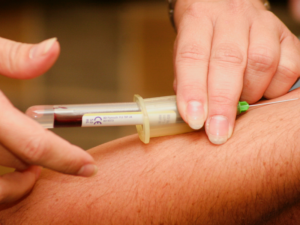Anna Poullard, DNP, ACNP-BC
Clinical trials play an important role in enhancing outcomes in the treatment of patients with cancer. Oncology clinical trials provide the necessary data about the safety and efficacy of new drugs in patients with advanced cancer. It is essential to test drugs in a variety of populations because people can have variable responses to treatment. Woods-Burnham et al. reported clinical trial studies consistently demonstrate the underrepresentation of minorities, specifically African Americans, in clinical trials even though they are disproportionally affected by cancer.1 Lack of diversity in clinical trials may result in skewed findings that are not generalizable. The advanced practice provider (APP) is poised to assist in the enrollment of a diverse patient population in clinical trials, and some practical suggestions will be discussed in this article.
African Americans in the United States who are affected with end-stage cancer have the highest death rate with the lowest survival rate of any racial or ethnic group.2 Approximately 1% of Hispanics and 5% of African Americans with advanced cancer enroll in clinical trials.3 The data that is obtained from clinical trials provide the rationale for the use of certain drugs used in specific cancers and reflect the populations that will most likely benefit from treatment. Therefore, the importance of enrollment of minorities in essential in the success of clinical trials across this patient population.
Overcoming barriers to enrollment to minority enrollment clinical trials is important for the efficacy and safety of new therapies. Clark et al. identified 5 possible barriers and solutions to minority participation in clinical trials as listed below:3
- mistrust (understanding)
- lack of comfort with the process
- lack of information
- time and financial
- lack of awareness and understanding
Here are some ways that the APP can assist in addressing these barriers.
Mistrust (understanding): The perception of trials may differ based on historic influences. Address all fears and misconceptions. APPs should develop a level of trust and ensure that safety is primary for all patients enrolled in clinical trials. Offer to keep the patient’s primary care provider informed if the patient permits.
Lack of comfort with the process: APPs must communicate clearly and concisely at the educational level of the participant. The consent for clinical trials can be overwhelming for many patients. APPs work closely with the clinical trial coordinator who is the point of contact for the patients. Ensure that the enrollment is voluntary and that they may withdraw consent at any time.
Lack of information: APPs must consider all aspects of enrollment in clinical trials for the patients. APPs should provide vital information such as side effects and toxicities and how this will be managed appropriately for the patient to receive the benefits of the study. APPs must ensure that their safety is a high priority. Provide information for the support system, such as social work, triage nurse line, study coordinator, clinical trial physician and consults for specialty services, supportive care, psychiatry or integrative medicine and the services that are offered at the institution.
Time and financial constraints: APPs collaborate with the physicians and study coordinators to locate appropriate clinical trials that offer travel and lodging reimbursement for those who meet financial criteria. Consult social work and case management for other resources in the community for patients with lodging needs. The APPs/study coordinator can assist in grouping multiple appointments for patients with time constraints.
Lack of awareness and understanding: APPs participate in community outreach and increasing public awareness. This will increase clinical trial awareness.
It is imperative that APPs be deliberate in the effort to ensure that minorities are given the opportunity to participate in cancer clinical trials. This would a provide a path to evidence-based clinical practice in this population thus improving healthcare delivery.

References
- Woods-Burnham, L., Johnson, J., Hooker, Jr., S., Bedell, F., Dorff, T., & Kittles, R. (2021). The role of diverse populations in US clinical trials. Med,2(1),21-24.
- DeSantis, C., Miller, K., Sauer, A., Jemal, A., & Siegel. R. (2019). Cancer statistics for African Americans, 2019. A Cancer Journal for Clinicians, 69(3), 211-233.
- Clark, L., Watkins, L., Pina, I., Elmer, M., Akinboboye, O., et al., (2019). Increasing diversity in clinical trials: Overcoming critical barriers. Current Problems in Cardiology, 44(5), 148-172.







